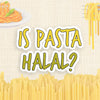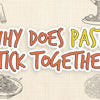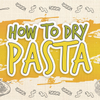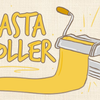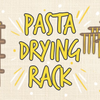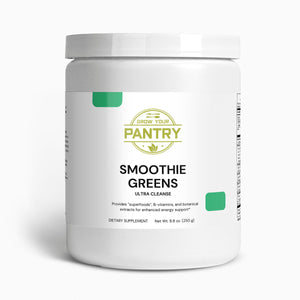Can Cats Eat Pasta? A Feline's Guide

Cats can eat plain pasta as all the ingredients in pasta are not harmful to cats, but nor is it recommended. The standard pasta recipe requires only wheat flour, eggs and water - all of which are perfectly healthy to cats except those that might be allergic to wheat. This guide seeks to definitively answer whether cats can eat pasta and its accompanying dishes.
What Is Pasta?
Pasta is an Italian dish consisting of dough that’s prepared using durum wheat and water. The dough gets extruded or stamped into the required shapes and can be cooked by boiling it in water. Pasta can be divided into two major categories: dried and fresh pasta. Dried varieties are produced and dried commercially via the extrusion process. New varieties, on the other hand, are prepared by hand as per the traditional recipe. Further reading material wikipedia.
Can Cats Eat Pasta?
Yes, cats can eat plain pasta without any significant complications. However, pasta is full of starch and carbohydrates which the cat’s digestive system isn’t fully specialized to digest. This can, therefore, lead to obesity and weight gain in your cats. Some cats are also hyper allergic to certain foods such as wheat - which is a primary ingredient in pasta. If your cat is allergic to gluten wheat, you should avoid feeding it pasta at all costs as this might trigger allergic reactions. Further reading material the sprucepets.com.
What Vets Say
Vets agree on the fact that a little pasta probably won’t do any harm to your feline friend, but before you feed your cat pasta for the first time, it's recommended to seek your vet’s opinion on the same. It’s also important to remember that pasta is only safe to cats when served on its own, additional accompaniments such as soup and sauces may contain harmful ingredients that might trigger lethal reactions. While pasta is rich in energy-producing starch molecules, cats cannot metabolize it as they are obligate carnivores. This means that a cat gets most of the energy needs and other dietary needs from protein-rich diets such as meat. Further reading material allpetmagazine.com.
Gluten Allergy In Cats
Gluten intolerance in cats is a rare and severe digestive complication in felines that is triggered by the consumption of gluten-rich foods such as wheat-based diets. Cats are true carnivores and cannot breakdown gluten as they lack the specific enzymes required to digest the molecules. As a result, gluten is not natural to feline diet, and overconsumption of it can trigger allergic reactions in cats.
Symptoms Of Gluten Allergy In Cats
Weight Loss - Gluten allergy may trigger weight loss in some cats as their stomach lining gets irritated so much that nutrient absorption nearly comes to a halt in the digestive system. This leads to a drastic loss of weight. Gluten allergy in cats makes their stomachs so irritable that most cats will stop feeding, which increases the rate of weight loss.
Chronic Diarrhea - Gluten intolerance in cats is rare; however, gluten sensitivity is more common and is majorly signified by frequent and chronic diarrhea. This leads to a drastic loss of electrolytes and dehydration. Chronic diarrhea may also make your cat look fatigued. Chronic diarrhea requires immediate attention from the vet and a constant supply of clean drinking water for your cat to keep it dehydrated.
Feline Asthma - Feline asthma is an allergic respiratory disease that affects cats. It is classified as a chronic progressive disease which means it advances as the cat gets older, and there’s no cure. Consumption of pasta which is rich in gluten may at times trigger feline asthma in older cats leading to wheezing, labored breathing and coughing, which can be potentially life-threatening to the cat.
Itchy And Dry Skin - Consumption of gluten-rich foods may trigger itchiness and dry skin which is not only uncomfortable for the cat but also leads to excessive scratching, which can result in open wounds and bacterial infections. Pasta is also low on nutrients required to maintain healthy skin and coat; these include omega-three fatty acids and zinc.
Vomiting - Vomiting is the first observable reaction to a cat eating something that isn’t settling well with its stomach. After consuming gluten-rich foods such as pasta, gluten-sensitive cats will often vomit to try and get rid of the allergen.
Cats Natural Diet
Cats are true carnivores which mean they require a source of animal proteins to survive. In the wild, cats prey on animals which they hunt and consume raw meat, organs and bones. As a result, pet cats will be required to be fed raw meat on a regular basis and avoid feeding your cat too many grain-based meals as this will only lead to unhealthy weight gain. Further reading material wagwalking.com.
Is It Recommended For Cats To Eat Pasta?
No, while pasta may be safe for your cats, it is not a healthy source of nutrients as it lacks the rich protein content that cats need and it also contains gluten which may trigger gluten sensitivity and allergic reactions.
Can Cats Eat All Types Of Pasta?
No, cats can only eat plain pasta varieties which do not have additional sources and soups which might contain harmful ingredients.
Problems With Cats Eating Pasta
Pasta contains large amounts of starch and carbs which the cat’s digestive system isn’t adapted to break down. As a result, these get converted into fat instead of being metabolized, leading to weight gain. Pasta also contains gluten which can trigger allergic reactions in hypoallergenic cats.
How To Safely Feed Your Cat Pasta
Only Feed Your Cat Small Quantities - If you are planning on introducing your cat to a pasta diet, it’s recommended to stick to small quantities to avoid overconsumption of starch and carbohydrates. These will only lead to weight gain as the cat cannot metabolize the starch. Feeding your cat small quantities will also prevent extreme allergic reactions to the gluten.
Consult Your Vet Beforehand - If it’s the first time your cat is trying out pasta, you should seek your vet’s opinion to avoid adverse and unseen reactions to such a diet. Your vet will advise you on whether your cat is hypo-allergic or hyper allergic to gluten, thus determining if it’s perfectly okay to eat pasta.
Pasta Sauce And Cats Eating It
Types Of Pasta Sauce Ingredients To Avoid Feeding Your Cat
1. Onions And Garlic
2. Chocolate
3. Raisins
4. Salty Sauces
Common Questions
Can Cats Eat Dry Pasta?
No, cats should not be fed dry pasta as it can shatter and possibly choke your cat as it tries to swallow the dry pasta.
Is Whole Grain Pasta Bad for Cats?
No, whole grain pasta isn’t bad for your cats, but at the same time, it’s not great for cats due to the high starch and carbs content which the cat cannot metabolize.
Is Chocolate Pasta Bad For Cats?
Yes, chocolate contains caffeine and theobromine molecules which are highly toxic for felines and can even lead to heart arrhythmias and muscle tremors.
Can Cats Eat Noodles?
Yes, cats can eat noodles as long as they are served plain and without any additional dishes that might contain harmful ingredients.
Can Cats Eat Cheese On Pasta?
No, cats cannot digest cheese and other dairy products efficiently as their digestive system isn’t adapted to digest lactose molecules.
Can Cats Eat Pasta OR Rice?
Yes, pasta can eat pasta and rice, but it’s not healthy to feed your cat such meals as they are rich in starch which the cat cannot metabolize.
What Foods Are Cats Not Allowed To Eat?
Cats are not allowed to eat food containing chocolate, caffeine, onions, garlic and raisins.
What Human Foods Can Cats Eat?
Cats can eat cooked meat, fish, cooked vegetables, and eggs
Do Cats Need Carbohydrates?
No, cats get most of their energy needs from metabolizing proteins, and their digestive system is not equipped to digest carbs efficiently

